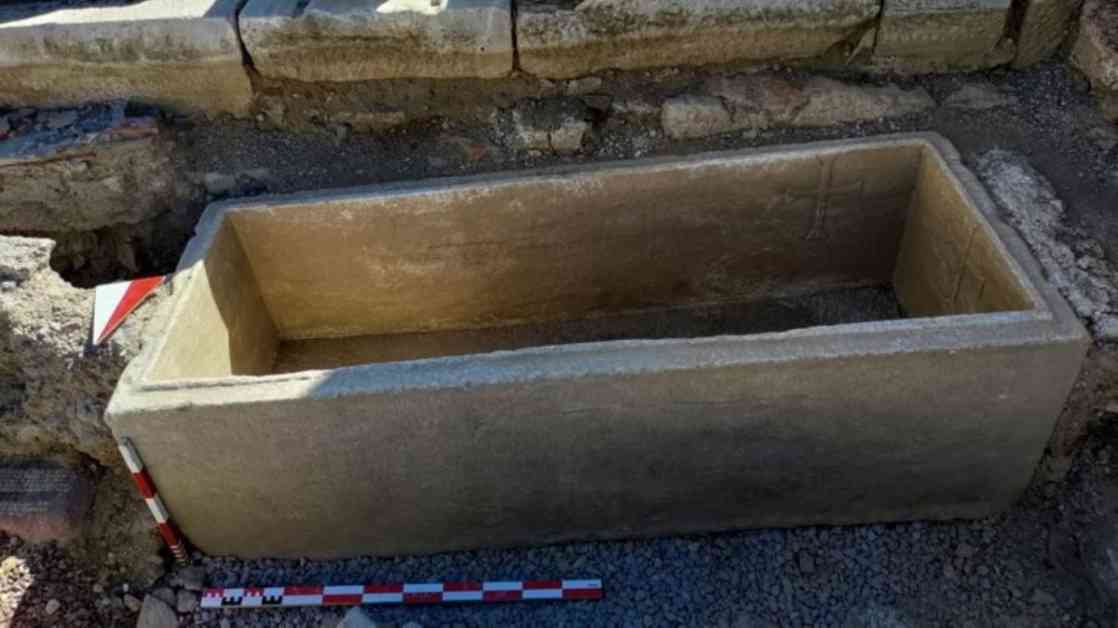Archaeologists in Turkey made a surprising discovery when they unearthed an ancient sarcophagus dating back 1,800 years. The inscriptions on the sarcophagus indicated that it belonged to a Roman gladiator named Euphrates. However, instead of finding the remains of the gladiator, the team found the bones of 12 women and men dating back to the fifth century A.D. This suggests that the sarcophagus was reused approximately 200 years after it was originally built.
The excavation was led by Sinan Mimaroglu, an associate professor and art historian at Hatay Mustafa Kemal University in Turkey. The team found the Roman tomb inside the ruins of a basilica on Ayasuluk Hill, which is a mound in Turkey’s western Izmir Province that is part of the ancient Greek city of Ephesus. The lid and interior of the stone coffin featured Christian cross symbols similar to engravings found in imperial tombs in other parts of Turkey and Syria.
Inside the sarcophagus, the researchers found three cross reliefs dating back to the fifth century, as well as several crosses on the tomb’s lid that were likely added in the eighth century. Mimaroglu mentioned that the team is currently comparing these crosses to others found in the region to gain more insight into the beliefs of the individuals who created them.
The tomb was buried just 8 inches beneath St. John’s basilica on Ayasuluk Hill. The basilica, which is dedicated to St. John, was originally an ancient burial site that was converted into a domed building by the Eastern Roman emperor Justinian I during his reign from A.D. 527 to 565.
The 12 individuals buried in the fifth century were likely of high status in society. Mimaroglu suggested that these burials inside the church probably belonged to the upper class or clergy, as it is unlikely that an ordinary person would be buried in such a meticulous manner within a church.
Although little is known about the gladiator Euphrates other than his name, the mound where he was buried has a rich history that dates back to before the construction of Ephesus around 3,000 years ago. The discovery of this Roman gladiator tomb in Turkey sheds light on the diverse history and cultural practices of the region, providing valuable insights into the lives of individuals from different time periods.




